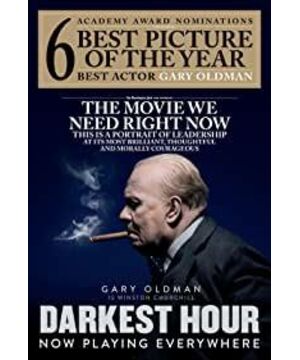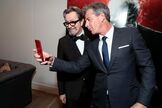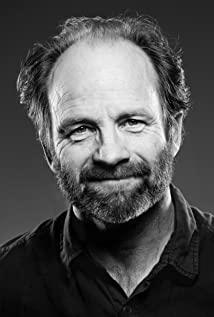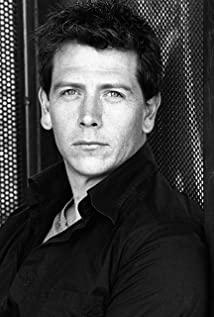Text/Eraser
In the darkest hours, do not invite yourself, do not ring the doorbell.
On June 4, 1940, Operation Dynamo was a success, and Churchill first reviewed for the audience the nightmare journey that began in the second week of May 1940, before reporting the number of rescues that were heavy and far exceeded expectations. Regarding Calais, which attracted German firepower to escort the engine operation, Churchill mentioned that after four days of fierce street fighting, the army general was told that he had only one hour to surrender, and the commander scoffed. Churchill described: Silence re-emerged in Calais, the Royal Navy brought back only 30 survivors, and the fate of all the remaining companions was uncertain. In the film is a tens of seconds long shot, following the brigadier general walking in Calais's last army hurriedly dismantling the telegram signed by Churchill himself to read, fire, light, blood, wounds, and moans all along the road, he stood still and closed the paper from the blood. The crowd of soldiers raised their eyes to see through the air-raid shelter, and the shot turned into the thick smoke and fire of several shuttle bombers carrying bombs.
The nightmare is so long, and the sky will still be bright.
The decision at the time remains particularly gripping in hindsight. Ladies and gentlemen, this is not to promote the so-called "biographical film", every film related to history is a surprise attack of the imagination in the shackles of steel. The creator of the film, Hing Min Ye, combs the evidence and organizes opinions. Standing on the basis of written records, historical images, and common sense axioms, there should be no conflict or bias. There are still bystanders alive, there are still universal values to consider, and the space for dancing is extremely limited.
The regret, vigilance, and uncompromising Churchill added to the mission is intentionally depicted in the film . He resolutely corrected his wife's sigh. Being appointed Prime Minister is not the fulfillment of his adult wish, but the fulfillment of his long-cherished wish since he was a child; he said that he does not gain affirmation in his physical age, but when the mess is left unfinished, he can only rely on the wisdom of the waning years. , this is not honor, this is revenge; the King of England has set a time for a weekly meeting, and can't wait to reject all the king's motions; seeing his boss once a week is like pulling a tooth; having a lunch meeting with his own boss, he bluntly said I'm unwanted; the King of England hesitated Whether to avoid chaos and go to Canada, suggesting that he did not want to lose his reputation, he quietly asked the king to consider protecting his own safety. Sophisticated and slick veterans sell a few cutes, and add some obstacles in the midst of many difficulties.
The film continues to intensify the sternness and courage of the individual . In the war room, he was cornered by the peacemakers, and the dignified prime minister, without playing any tricks, rushed out of the door just to make a phone call that might save the world. The Conservative Party only followed Chamberlain's lead. The two old gentlemen were muttering everywhere. Only the man in power had a calm face, no response, and only the street scene. He learned the truth from my friends in the subway. mental strength.
Only the protagonist shines brightly.
Because he is not the protagonist, Halifax, who has passed by the prime minister's position and is also from a high-class family, can step back and become a Facebook. According to undocumented online information, he also has all kinds of small details that are recognizable for the protagonist's halo, such as a noble accent that can't pronounce "r" sound; a huge height suitable for the first male protagonist; a naturally atrophied left arm And the lack of a left hand; good education, elegance and talent, not only reflected in the love of writing a diary, he wrote a memoir Fullness of Days immediately after the war, the number of readers is of course too few compared to the Nobel Prize Mr. Churchill, and it was not found after its publication in 1957. There are replicas in the Far East and no one has translated them. In the movie, Halifax and Chamberlain's alliance and face-turning are slapped by the facts and people representing justice and love from beginning to end, without the protagonist's personal response, like a strange drama of unilateral provocation. In particular, Halifax, on the other hand, was afraid that he would refuse to accept the position of Prime Minister by the House of Commons, and he wanted to attack Churchill by creating an opportunity to get back on his feet. Even though the motives seemed to be slightly tortuous, the film did not bother to give a more reasonable explanation.
Innocent, loyal, courageous, and blessed by the destiny on his side - this is a typical biography of a victor. The country has been decided, and the victory award will be given to the most loyal and talented person who has broken through the layers of thorns to see the sunshine. The country, collective and individual we defend will get the honor we want. No overbearing president Wen can be more hearty than this.
Gary Oldman's acting skills are really admirable. In the dozens of minutes of speeches that can be found in all public information, sometimes Mr. Churchill's voice that seems to be about to faint from drunk is not as convincing as the movie version. In other words, there are no big beams of chasing light that make faces sharp, the background glows with a convincing afterglow of heaven, white handkerchiefs are pouring down, and the audience is looking at these environment blessings with black eyes full of thirsty milk, Gary Oldman's voice is also more like God's Call. The narrow, indistinct, even comparatively calm voice of Churchill's own murmured radio recordings would have been just one day out of countless dark hours a few decades ago.
Yes, I think the famous speech on screen was Gary Oldman winning. The real version of the speech is more credible and feasible. I have seen interviews with veterans in Dunkirk. No one can know what kind of history they are in, and no one can even know which side they are winning or losing. Instead of treating each speech as a dramatic conclusion, it is also treating each moment as the final moment of gathering strength to reach the desired outcome. This is similar to what we strive to do well every day.
It's not against the film's treatment of history. We really need carefully crafted universal values. When the details can withstand repeated scrutiny and the protagonist’s figure is too tall to be ignored, the conclusion of the movie becomes credible through the logic that seems to satisfy the analogical reasoning. Leave the protagonist to the movie and the truth to time. There is no way to know if this is the big picture, the darkest moment in my small life, but at least let it go.
View more about Darkest Hour reviews











